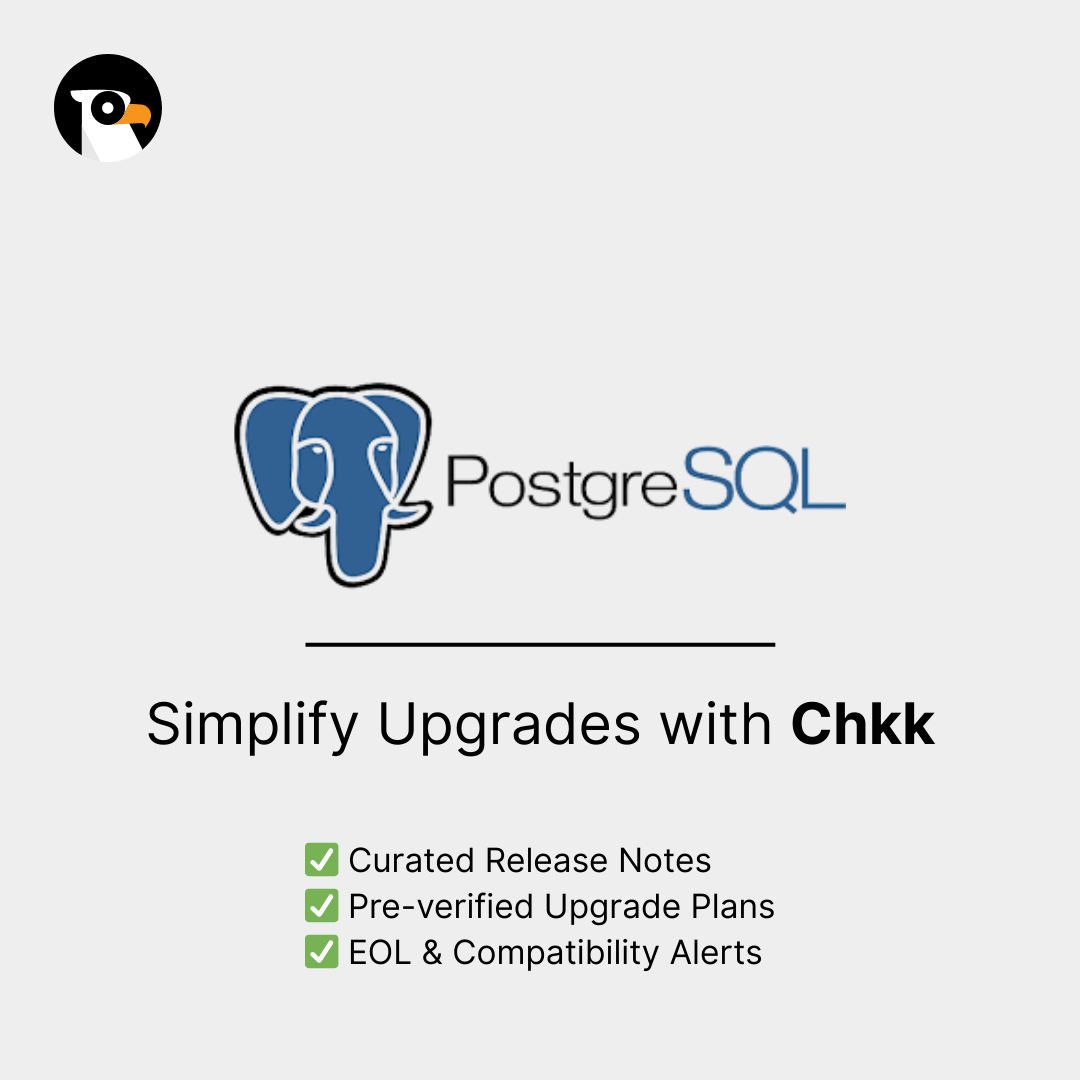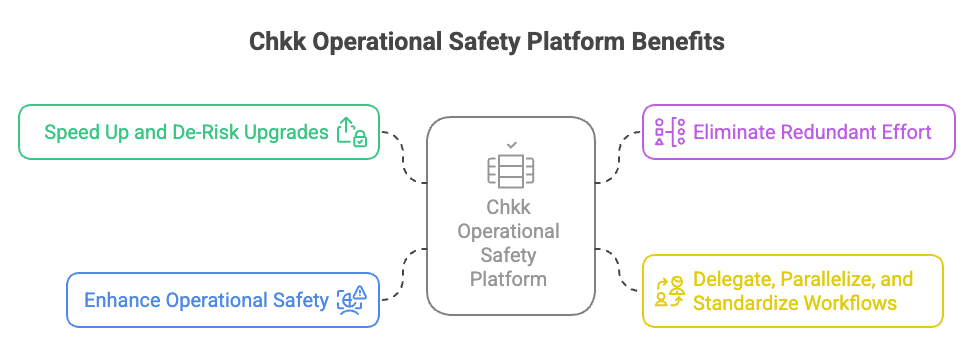

PostgreSQL is the advanced, open‑source relational database that underpins countless cloud‑native applications. In Kubernetes, platform teams deploy it via operators, Helm charts, or managed services—taking advantage of extensions like PostGIS, high availability through streaming replication, WAL archiving, and point‑in‑time recovery. Yet upgrades can be deceptively tricky. Major releases may change authentication defaults (e.g., a shift from MD5 to SCRAM‑SHA‑256), adjust configuration parameters or their defaults, and require careful coordination across replication, extensions, autovacuum, WAL retention, and connection limits.
In this post, we’ll show how Chkk’s Operational Safety Platform provides an end‑to‑end approach to managing PostgreSQL upgrades. From curated release notes and preflight checks to structured Upgrade Templates and preverification on a digital twin, Chkk helps you upgrade PostgreSQL confidently, without the usual risk of disruptions or downtime.
Chkk continuously monitors PostgreSQL release notes, filtering out the noise to highlight the changes that matter most for your environment. Instead of sifting through lengthy upstream changelogs, you get concise, actionable highlights—like PostgreSQL 14’s pivot toward SCRAM‑SHA‑256 password encryption—paired with guidance on what to change and why. These summaries help platform teams quickly assess upgrade impact across clients, drivers, and connection poolers and avoid surprises.
Before an upgrade, Chkk validates compatibility and safety—flagging deprecated or removed settings and altered defaults; verifying replication readiness (roles, slots, synchronous vs. asynchronous expectations) and acceptable lag thresholds; checking extension and contrib module compatibility (e.g., PostGIS, pg_stat_statements); aligning connection limits and pooling settings (PgBouncer/Pgpool) to prevent resource exhaustion; and assessing autovacuum health and transaction ID age to avoid XID wraparound risk.
After the upgrade, postflight checks confirm replication state and catch‑up behavior; verify extension load/upgrade status; review workload health signals (wait events, lock profiles, cache hit ratios); and recommend essential maintenance, including ANALYZE to refresh optimizer statistics and targeted VACUUM/REINDEX to reduce bloat.
Chkk continuously tracks PostgreSQL’s support timelines. When your current version is approaching end‑of‑life or missing critical patches, Chkk proactively recommends a stable, community‑tested version that balances reliability with features—tailored to your operator/Helm/managed‑service constraints—so you can plan upgrades well before your version becomes unsafe or unsupported.
Chkk provides structured Upgrade Templates tailored for PostgreSQL, supporting two main strategies:
For PostgreSQL upgrades, Chkk’s preverification acts as a safety net by rehearsing the upgrade on a digital twin of your environment before it reaches production. This staging run replicates your configuration, extensions, schema, authentication, and WAL/archive posture to surface issues—such as incompatible extensions, schema anomalies, certificate mismatches, or replication settings that won’t converge—before they affect users. By surfacing failures early, you can resolve them in advance and proceed with confidence.
Whether you deploy PostgreSQL via Helm charts, Kubernetes operators, custom images, or cloud‑managed services, Chkk adapts to your workflow. The platform parses your current state and tailors its checks and upgrade steps to fit your approach—so you keep your preferred GitOps model while benefiting from Chkk’s automated guidance.
Chkk Operational Safety Platform simplifies upgrades, reduces risk, and keeps your Kubernetes infrastructure operational. Here’s how that applies to PostgreSQL upgrades:

Try Chkk Upgrade Copilot to experience how these extended capabilities can simplify your upgrade processes for PostgreSQL and 100s of other Kubernetes Add-ons, Application Services, and Open Source Projects. We look forward to helping you achieve seamless, secure, and efficient operations.
Click below to start for free or book a demo to learn more.